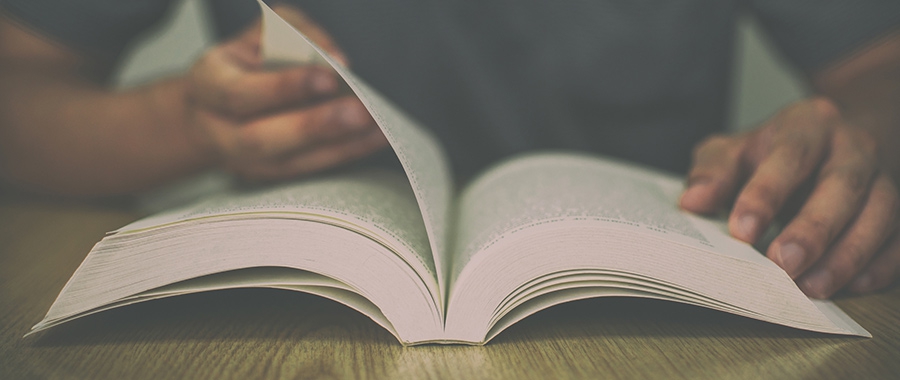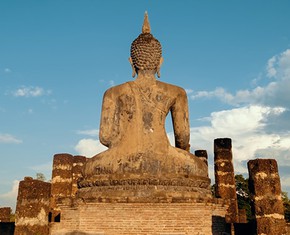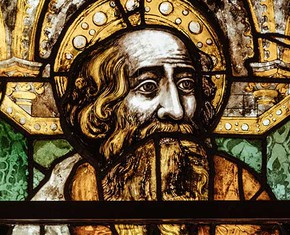The views expressed in our content reflect individual perspectives and do not represent the authoritative views of the Baha'i Faith.
The more that you read, the more things you will know. The more you learn, the more places you’ll go. – Dr. Seuss
Reading is the sole means by which we slip, involuntarily, often helplessly, into another’s skin, another’s voice, another’s soul. – Joyce Carol Oates
What a miracle it is that out of these small, flat, rigid squares of paper unfolds world after world after world, worlds that sing to you, comfort and quiet or excite you. Books help us understand who we are and how we are to behave. They show us what community and friendship mean; they show us how to live and die. – Anne Lamott
At BahaiTeachings.org, we get these three questions all the time: Do the Baha’is have one book I can read, a single volume like the Bible or the Qur’an? Or: Which Baha’i book has the most information? Or: I want to know more, so what Baha’i books should I read?
Well, you have a lot to choose from. The Baha’i writings contain an enormous diversity of style, substance and subject matter—mystical treatises and poetry; books of spiritual advice, insight and wisdom; volumes about social change and the Baha’i principles; books of laws and exhortations; prayers and meditations; even inspiring stories of Baha’i history and biographies of the remarkable people who first risked their lives to follow such a revolutionary Faith.
Baha’u’llah himself wrote more than a hundred volumes, his revelation spanning four decades. His son Abdu’l-Baha wrote three books, and his public addresses, letters and tablets comprise many, many more. The Guardian of the Baha’i Faith, Shoghi Effendi, translated multiple books into English, wrote one book of Baha’i history and also wrote more than 17,000 letters, including lengthy essays, treatises, monographs and compilations on a wide range of Baha’i-related subjects, many of which have now been published as full-length books.
For all those reasons, Baha’is often refer to the voluminous, extensive and profound Baha’i writings as having the depth and breadth of an ocean:
Divine things are too deep to be expressed by common words. The heavenly teachings are expressed in parable in order to be understood and preserved for ages to come. When the spiritually minded dive deeply into the ocean of their meaning they bring to the surface the pearls of their inner significance. There is no greater pleasure than to study God’s Word with a spiritual mind. – Abdu’l-Baha, Abdu’l-Baha in London, p. 80.
These writings—the lyrical, beautiful written works of Baha’u’llah and Abdu’l-Baha—comprise Baha’i scripture. Baha’is view these works as their holy books, and regard them as an ocean of utterance, guidance and wisdom sent from the Creator:
This is the Voice of God, if ye do but hearken. This is the Day Spring of the Revelation of God, did ye but know it. This is the Dawning-Place of the Cause of God, were ye to recognize it. This is the Source of the commandment of God, did ye but judge it fairly. This is the manifest and hidden Secret; would that ye might perceive it. O peoples of the world! Cast away, in My name that transcendeth all other names, the things ye possess, and immerse yourselves in this Ocean in whose depths lay hidden the pearls of wisdom and of utterance, an ocean that surgeth in My name, the All-Merciful. – Baha’u’llah, Gleanings from the Writings of Baha’u’llah, p. 33.
If you’re just getting to know the Baha’i teachings, and would like to begin immersing yourself in the ocean of the Baha’i writings, you could start with Baha’u’llah’s short, unique, powerful book of spiritual aphorisms called The Hidden Words. In it, Baha’u’llah wrote:
This is that which hath descended from the realm of glory, uttered by the tongue of power and might, and revealed unto the Prophets of old. We have taken the inner essence thereof and clothed it in the garment of brevity, as a token of grace unto the righteous, that they may stand faithful unto the Covenant of God, may fulfill in their lives His trust, and in the realm of spirit obtain the gem of Divine virtue. – Baha’u’llah, The Hidden Words, p. 3.
If you’d like to undertake a more extensive study of the Baha’i writings, years ago two visitors to the Baha’i World Centre in the Holy Land brought back the Guardian’s reading recommendations:
Shoghi Effendi recommended an intensive study of The Kitab-i-Iqan [Book of Certitude] by Baha’u’llah and Some Answered Questions by Abdu’l-Baha. These books will repay thorough study, mastery, even to the point of memorizing certain passages. It is well, too, to read contemporary books, selecting the best, dealing with the same subjects, in order to become thoroughly acquainted with the subject and be able to clarify the Baha’i teachings. The Dawn-Breakers, a narrative of early events in the Baha’i movement recently translated by Shoghi Effendi will also repay careful study. – Mabel and Sylvia Paine, Star of the West, Volume 10, p. 144.
As you can see from this advice, Shoghi Effendi advised the Baha’is to carefully study three books: Baha’u’llah’s The Book of Certitude; Abdu’l-Baha’s Some Answered Questions, and Nabil’s history The Dawnbreakers. But he also recommended reading new, contemporary books widely and extensively, and not only focusing on the Baha’i writings themselves. Baha’is believe that they should concern themselves chiefly with what will benefit humanity, because the Baha’i writings encourage everyone to constantly educate themselves in the most helpful areas of human endeavor.
When you do set sail on the ocean of the Baha’i sacred scriptures, remember one thing: look for the inner, symbolic and spiritual meanings in every passage:
The divine Words are not to be taken according to their outer sense. They are symbolical and contain realities of spiritual meaning. For instance, in the book of Solomon’s songs you will read about the bride and bridegroom. It is evident that the physical bride and bridegroom are not intended. Obviously, these are symbols conveying a hidden and inner significance. In the same way the Revelations of St. John are not to be taken literally, but spiritually. These are the mysteries of God. It is not the reading of the words that profits you; it is the understanding of their meanings. Therefore, pray God that you may be enabled to comprehend the mysteries of the divine Testaments. – Abdu’l-Baha, The Promulgation of Universal Peace, p. 458.
You May Also Like
Comments

















being taken on that rollercoaster
journey, hoping to spiral ever upward! For somebody willing to
get into real depth and precision
about the station of Baha'i Central
Figures, Shoghi Effendi's "The Dispensation of Baha'u'llah" is our
ultimate reference. For getting back
to basics, of course "The Hidden Words", as you said, but I also like
"Words of Wisdom" from "Tablets
of Baha'u'llah" as a fine "refrigerator door" reminder!
In my own Baha'i journey, I rely on one book to give to those wanting more who know little about the Faith, and that is Baha'u'llah and the New Era by John Esselmont. I should admit I'm partial to it because it was the first Baha'i book I read, and its coverage of the spiritual, obligatory and administrative areas of the Faith is still comprehensive decades later.